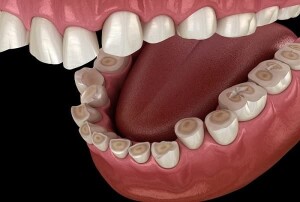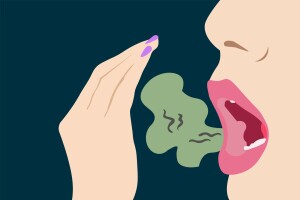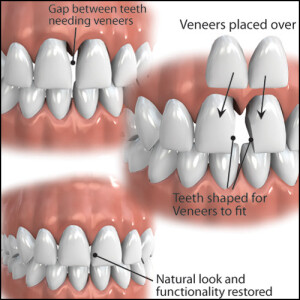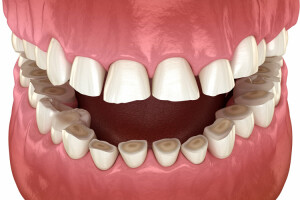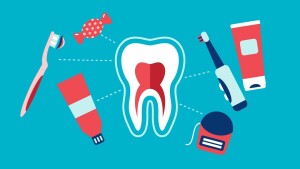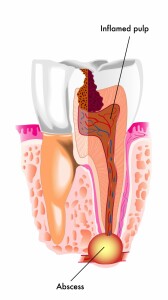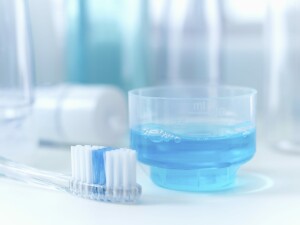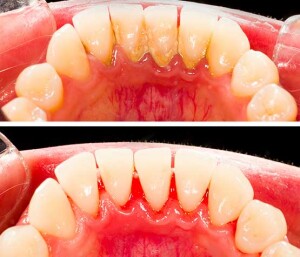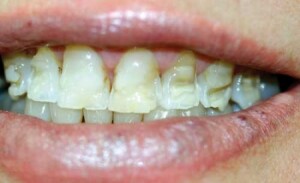Tooth erosion is the wearing away of tooth enamel by acid. The enamel is the hard calcified tissue that covers and protects the outside of the tooth. It is also the hardest substance in our bodies.
Symptoms of tooth erosion can range from sensitivity to more severe problems such as cracking. Be sure to let your dentist know if you experience any symptoms of tooth erosion.
Early Symptoms of Tooth Erosion
- Discoloration – Since the dentin of the tooth is exposed during tooth erosion, discoloration or yellowing of the teeth can occur.
The more dentin that is exposed, the more yellow the teeth will become. - Tooth Sensitivity – Sensitive teeth are very common symptoms of tooth erosion because the enamel that protects the teeth wears away, leaving exposed dentin.
- Rounded Teeth – During the early stages of tooth erosion, it is common for teeth to have a rounded look.
- Transparent or Sand Blasted Appearance – It is not uncommon in the early stages of tooth erosion for the teeth to have a sand blasted look or for the tips of the front teeth to look transparent.
Advanced and Severe Symptoms of Tooth Erosion
- Cracking – If tooth erosion continues into the advanced stage, the edges of the teeth can start to crack and have a rough feeling.
- Dents – Little dents, also called cupping, can start to appear on the biting areas of the teeth.
- Extreme Sensitivity – Since the enamel wears away during tooth erosion, the teeth can become extremely sensitive during the advanced stages of tooth erosion.

